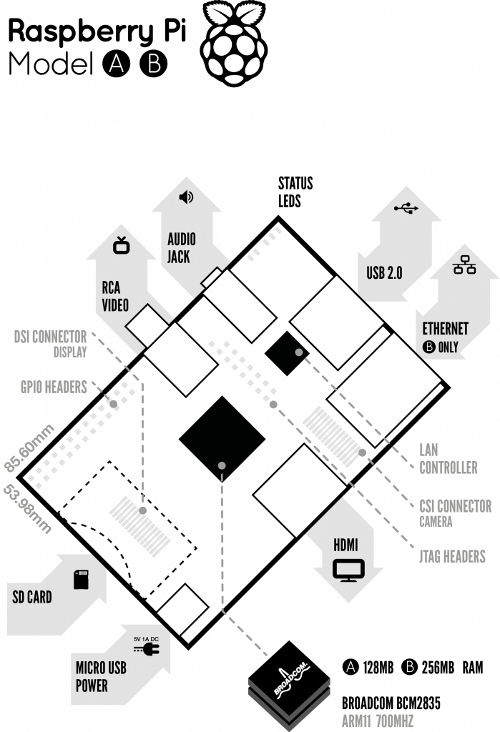Manufacturing has begun on a Linux computer that costs just $25. But the British developers have conceded they will have to outsource production overseas to make it viable.
The long-running project aims to cut costs by reducing a computer to its most basic components while still having all the functionality you’d expect from modern hardware. The idea is to make it so cheap that children around the world can buy one or have it as a gift and learn processing skills.
To keep the computer within budget, it’s reduced to a single chip board around the size of a credit card with no external casing. There’s an HDMI socket and analog video and audio sockets for connecting to a TV. There’s also a USB slot for connecting a keyboard (or inserting a USB hub for multiple input devices or a USB drive), and an SD card slot for storage. There are two models, one of which includes an ethernet cable for internet access (though the other should support wireless dongles.)
The machine only supports 256MB of memory, so it will support Debian, Fedora, and ArchLinux, though the manufacturers expect some people will at least attempt running older versions of Android. Windows emulators look to be a step too far at this stage.
The initial manufacture run is 10,000, though it’s not yet decided whether sales will start before the entire run is complete. There will be a maximum of one order per customer to minimize the risk of eBay scalping.
The Raspberry Pi Foundation, the British charity behind the device, had originally intended to have it manufactured entirely in the United Kingdom. It says that has proven impossible, with reasons including a slower turnaround time and difficulty finding manufacturers that could offer a good price but also deal in large quantities.
The group has also highlighted a damaging quirk in the British tax system: companies must pay import taxes on individual computer components, but do not have to do so on completed devices, which acts as a deterrence to domestic computer manufacturing.

